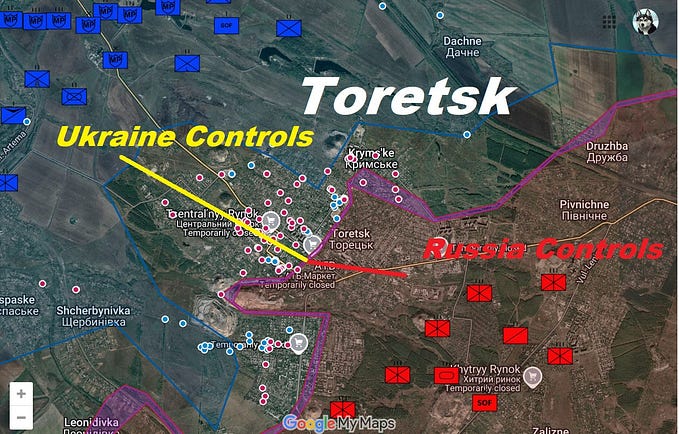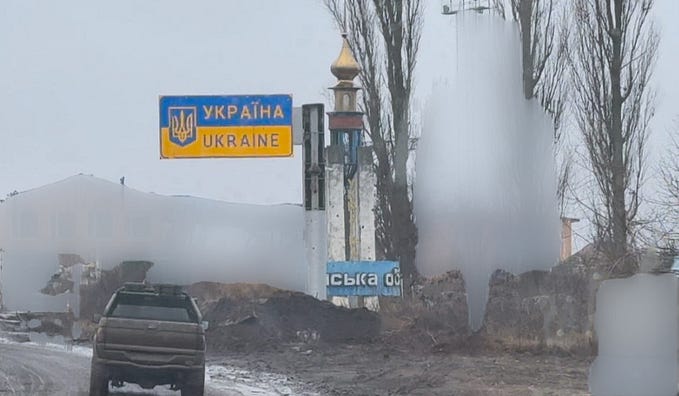A Bridge From Past to The Democracy: Transitional Justice

I. Introduction
Recent history shows that the countries have contended with authoritarian regimes. The governments used their power in a prejudiced way and this situation caused chaos in society, hence the people tried to get rid of the non-democratic politics. To the best of our knowledge, there were many types of transitions between regimes in the stage of history, but some kinds of transitions left a mark on the way of being a democratic state. Concordantly, this article is going to be discussed the transition from dependent to independent regimes. Just to clarify that it will be explained that the transitional justice implementation of the states and be addressed the beneficial effects on the states. In the course of any transition from authoritarian rule to democracy, questions about how to cope with the past and how to treat the perpetrators of the former regime have to be answered [1].

II. What is the Transitional Justice?
Transitional Justice means in the broad sense; the implementation of justice-seeking reparation for misdeeds and victimhood which occurred in the previous regime. [2] With constitutive power, it would be established new law, and these types of legislation should be obliterated the old authoritarian regimes traces. The primary objective of transitional justice is to end impunity and establish the rule of law in the context of democratic governance. [3]

III. Phases — Counter View Example
This concept is often understood as a framework of confronting the past as part of major political transformations. In late history, there were 3 different waves concerning the transition to democracy. The first one is the result of the 2nd World War; Germany and other European countries had puppet fascist regimes during the war. The second wave is the reversal of military dictatorships in South Europe and South America. In 1974 Portugal and Greece; in 1975 Spain has witnessed the reversal of dictatorships. ‘‘Spain is an interesting case in point here. Although scholars point to the ‘Spanish model’ as nearly an ideal type of transition to democracy there were no criminal trials, no public debates about the past, no renaming of cities or streets, no quests for justice and compensation, no transitional justice at all. But the exceptional case of Spain should not lead us to the conclusion that transitional justice is unnecessary.’’ [4]

The last wave is about the decline of socialism. The ‘‘iron curtain’’ has dissolved. A concrete symbol of this was the Demolition of the Berlin Wall. As it is seen that the authoritarian regimes have ended whatever it contains. It has faced up to the past in 2010 referendum in Turkey with the legislation about the annihilation of the legitimacy of 1980 coup. Based upon this example, the states use different mechanisms to get rid of the scars from authoritarian regimes.

IV. What should do the State?
Primary constituent power would use the transitional justice mechanisms when it actualizes the new equity in society. Fore mentioned the first wave in Germany; it has used the mechanism named ‘‘trials’’. The Germans named the memory work ‘‘Vergangenheitsbewaeltigung’’. This is a specific result of the transition to democratic justice. ‘‘Citizen or victim participation has to be guaranteed at all times, free from fear, want, and repercussions whilst dealing with the past. Qualitative high democratic performance depends on how equity laws such as international human rights norms and standards are applied by the judiciary and transformed into guidelines and laws by legislative and executive powers. The aim is that citizens (re-) gain civic trust in (democratic) state institutions, make use of them, strengthen them and abstain from arbitrary vengeance and undemocratic means to seek justice.”[5]

V. Arguments on Implementations
After the ending of the old regimes is it true to grant an amnesty, are these implementations are acceptable for society? Does the government have enough institutional capacity to call blameworthy to account for their past activities? The democratic regime must secure justice especially for the people, who are the victims of the past regime. Despite that, some kinds of societies do not want to face the past and the governments apply the ‘‘Amnesia and Amnesty’’ policies. ‘‘By refusing to confront and to purge itself of its worst fears and resentments, such a society would be burying not just its past but the very ethical values it needs to make its future livable. Thus, we would argue that, despite the enormous risks it poses, the ‘least worst’ strategy in such extreme cases is to muster the political and personal courage to impose judgment upon those accused of gross violations of human rights under the previous regime.’’[6]

On the other hand, some other type of societies upholds that there will be no democratic state unless the society does not face the past. It should be coming up against trauma of the past, with this confrontation there will be used different types of transitional justice mechanisms. These are criminal prosecutions, fact-finding bodies, reparations, justice reform, memory policies, and history education.

VI. Effects of Transitional Justice Mechanisms
In this context, two important notions should be examined: Trials and Truth Commissions. These notions should be argued about the effects of this mechanism and be stated the beneficial results on democratic state and the people.
Firstly, trials have multiple goals, including truth, deterrence, punishment, reconciliation, and promotion of the rule of law.[7] Trial advocates believe criminal punishment serves the needs of victims, reinforces social norms, removes political threats to the new regime, and deters future abusers. [8] In new democratic regimes, with trials, the structure of society will be intensified by trials. If the state does not toe the line, there will be no difference between the old authoritarian regime; and it will be called illusoriness on policy.

Secondly, truth commissions (with the truth-seeking principle) comprise official investigations into past abuses. These commissions investigate a pattern of abuses over a while, rather than a specific event. “Truth commissions are useful because they make it difficult to deny gross violations of human rights and a signal official determination to avoid the recurrence of violations.” [9] The most important thing in this sense is an official determination on violence and human rights. Because that-away, the itinerary of government has a special effect on people, susceptibility of state will bring the consent of society.

After that, it should be thought which justice should be implemented, retributive or restorative justice? Restorative justice does not exact a toll, it eliminates unfair phenomena and democratically rebuilds justice. ‘‘The overall goal of these measures is to delegitimize the previous suppressive or violent regime and to legitimize instead the new democratic regime.’’ [10]

VII. Is the Transitional Justice a Must?
Mainly, it should be argued the effects of the execution of transitional justice. Does Transitional Justice strengthen or threaten societal peace in transitional countries? Does it lead to greater or less respect for human rights and the rule of law? Does it foster reconciliation or exacerbate divisions? [11]
Equally important is that it is designed to support democracy and peace, the main objectives of societies that seek to recover after periods of mass violations. It will be possible to achieve these goals if the views and participation of the victim groups and the public are taken. [12] Before the regime transitions, commonly there were lots of human rights abuses; the victims are waiting to see justice done and they are wanting to be safe. In this sense, criminal prosecutions, truth-seeking, and institutional reforms will have beneficial effects on people with their results. ‘‘In some accounts democracies, as being open regimes requiring accountability, are charged with a moral obligation to investigate the abuses of former rulers and to prosecute the wrongdoers.’’ [13]

Some scholars go even so far as to claim that “the obligation for emerging democracies to prosecute the abuses of the former regime is not only moral but also a legal one, originating from international treaties and other sources of international law that countries ruled under democracy participate or subscribe to’’. [14]
Originally, it would be thought that during the trials the victims are living the moment again, so they have to recur the memories of violence or war. This is calamitously traumatic for them. But with trials, the state and all of the society will learn what happened here and the democratic authorities could see the whole picture. Nevertheless, the democratic state will amend the law, change the implementation of the regime; in the end, the new regime will commence a judicial reform movement.
Judicial reform (institutional) would provide an equitable environment, criminals would be brought to justice, gross human rights violations would be precluded. In addition to this, with a democratic regime, people will face the past and the transitional justice mechanism will have a beneficial effect on victims especially on human rights, consistent administration, and fair hearing.

By reforming or building fair and efficient public institutions, institutional reform enables post-conflict and transitional governments to prevent the recurrence of future human rights violations. [15] In this connection, the policy of judicial reform or institutional reform will have the most beneficial effects on people. Because these reforms affect the society, each person, the system of rules; and also, with this alteration human rights violations will be precluded socially and legally. Then, society accepts it as a model as well as the law draws a line on it. In this sense, transitional justice offers other benefits, including promoting reconciliation and psychological healing, fostering respect for human rights and the rule of law, and helping establish conditions for a peaceful and democratically governed country. [16]
Terminally, I would like to finish my article with this quotation: “Transitional justice is not a magic wand that can be waved to transform societies, but it can be an indispensable tool in the struggle to address recurrent cycles of violence, impunity, divided communities, displacement, gender inequality, corruption, and marginalization.’’ [17]

[1] Arenhövel M., Democratization and Transitional Justice, 01 June 2008, Routledge, p.570
[2] Erözden O., MEF University Law 228 Lecture, Introduction Video 1, 2019
[3]http://www.bundesheer.at/pdf_pool/publikationen/transitional_justice_sr_11_2013_03_c_binder.pdf.
[4] Adam Przeworski, ‘Problems in the Study of Transitions to Democracy’, Transitions from Authoritarian Rule. Comparative Perspectives. Vol. 3 (1988), p. 61.
[5] MIHR A., Transıtıonal Justıce: Between Crımınal Justıce, Atonement and Democracy Utrecht, 2012
[6] Guillermo O’Donnell and Philippe C. Schmitter, Transitions from Authoritarian Rule. Tentative Conclusions about Uncertain Democracies, Vol. 4.1991, p. 30.
[7] Jane E. Stromseth, ‘Introduction: Goals and Challenges in the Pursuit of Account- ability, ed. Jane E. Stromseth (2003).
[8] Kritz, supra n 7; Neil J. Kritz, ‘The Rule of Law in the Postconflict Phase: Building a Stable Peace’, (US Institute of Peace Press, 2001).
[9] Goldstone, supra n 2 .
[10] MIHR A., Transitional Justice and the Qualıty of Democracy — Utrecht, 2012
[11] Thoms O, Ron J. and Paris R., ‘‘State-Level Effects of Transitional Justice: What Do We Know?’’, The International Journal of Transitional Justice, 2010
[12] www.ictj.org
[13] Erözden O., Law 228 Week 1 Slides, 2019
[14] Ibid.
[15] Ibid.
[16] Jaime Malamud-Goti, ‘Transitional Governments in the Breach: Why Punish State Criminals?’ New York
[17] www.ictj.org










